To discern the journey God is leading us on, it’s always helpful to hear different accounts from different voices. These accounts help us test our own perceptions of the journey. It’s a strategy that Calvin Institute of Christian Worship (CICW) uses often when convening conversations.
“In looking back and looking forward, points of divergence create empathy. Points of convergence create a sense of solidarity that might not otherwise have been there,” said CICW director John Witvliet before two panel discussions at the 2015 Calvin Symposium on Worship in Grand Rapids, Michigan.
The following is compiled from panelists’ written and spoken responses to these questions:
- Looking back, what worship and discipleship topics were at the center of your personal reflection and church attention in 1995 and 2005?
- Looking ahead—based on your ministry in your community, denomination and cultural context, what do you think God is calling churches to pay special attention to in the next decade?
Click on photos to read responses.
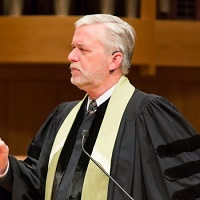 |
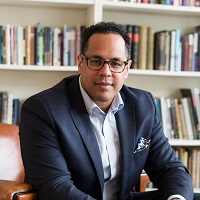 |
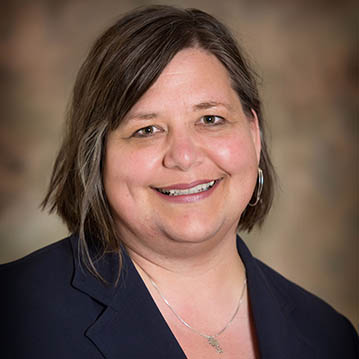 |
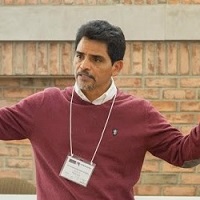 |
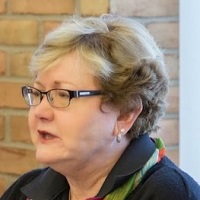 |
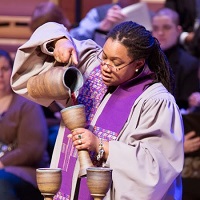 |
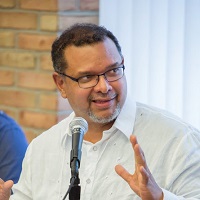 |
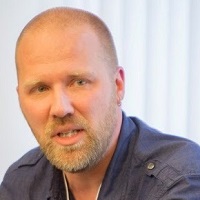 |
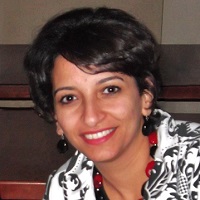 |
M. Craig Barnes is president and professor of pastoral ministry at Princeton Theological Seminary in Princeton, New Jersey. A Christian Century columnist, he researches and writes on forming pastors theologically to lead the church in changing times. His many books include The Pastor as Minor Poet: Texts and Subtexts in the Ministerial Life (Eerdmans, 2009).
Looking back
The 1990s were dominated by traditional-versus-contemporary worship wars. Mainline churches declined, so, out of fear, churches tried new worship forms to get new people. Putting screens in front of crosses and praise bands on chancels caused almost armed resistance. Lots of new churches started up. In the early 2000s, I spoke at a conference that was divided into contemporary and emergent worship. Being the old guy, I was asked to preach at the contemporary service. That group was ticked off that the emergents were worshiping on their own, in darkness, with smoke machines and a really loud band in the center. “Those emergents don’t know what we went through to bring guitars into worship!” they said.
Looking ahead
I see a lot of freedom where we’re headed. True, Presbyterian churches have divided and created networks along theological and regional lines. People now trust their own community more than the denomination as a whole. It’s okay to see everyone as brothers and sisters in Christ and yet belong to church communities where we do one, or a few, things well. We no longer think everyone has to worship in the same way. Everyone is free to worship as the Spirit leads.
But the church needs to keep becoming more multicultural and multilingual. I see the genius of including form and content from many worship traditions. In a 30-minute chapel service at Princeton Theological Seminary, we might have pipe organ, an Argentinean ballad and African drums—and it works. When done well, it feels like Pentecost.
Tim Blackmon grew up in the Netherlands and went to college in France. After seminary in the U.S., he was ordained in the Christian Reformed Church; planted churches in Moreno Valley and Folsom, California; and pastored his boyhood congregation, the American Protestant Church of The Hague.
Looking back
There’s been so much drama about worship that confessional Protestants have had to question and rethink what they believe about Christian worship.
- Willow Creek’s passion for engaging unchurched people in Sunday worship led to MTV-quality music and audiovisuals, Tony Award-worthy drama and messages that could go viral. But who and what is worship for?
- The Vineyard used dance, song and body movement to help worshipers experience supernatural intimacy with God and each other. They expected such worship to lead to deliverance, healing, sanctification and generosity. But is this quest for religious experience legitimate? What does it mean for Protestant piety oriented around the means of grace?
- North Coast Church in Oceanside, California, offers 19 live and streamed worship venues each weekend. Many churches now let worshipers customize worship according to their generational, musical, socioeconomic, demographic and stylistic preferences. But, as they say, what you win them with is what you win them to. So, are consumer choices for worship merely expressive—or also formative?
- Shane Claiborne and his band of ordinary radicals call the church to worship more simply, to join an irresistible Jesus Way of worship, kindness and social justice. Sometimes they worship by feeding the homeless and sheltering the poor rather than gathering at church. In a world of injustice, poverty and complex need, is worship really just a royal waste of time?
Looking ahead
With all the drama about superlative worship, experience and community change, will there be room for ordinary Christians? I’d love for a future Calvin Symposium on Worship to look at how much a theology of glory has shaped evangelical Protestant worship and how we can recover a theology of the cross in congregational worship and spiritual formation. I also wonder whether confessional Protestants’ creeds, piety and practices will be completely subsumed by either American evangelicalism or mainline Protestantism.
Joyce Borger is an ordained pastor in the Christian Reformed Church, serving as editor of Reformed Worship, director of worship ministries for the Christian Reformed denomination and editor of Lift Up Your Hearts: Psalms, Hymns, and Spiritual Songs (Faith Alive Christian Resources, 2013).
Looking back
In 1995, most churches were on two very different paths, either post-Vatican II more liturgical worship or Willow Creek seeker sensitive praise and worship. Many churches began holding multiple services of different styles to appease the body, more from a sense of necessity than with great foresight and planning. Technology has come so far since then. In 1995, churches were just starting to use computers and overhead projection. By 2005, everyone was using email and PowerPoint was the new thing.
The year 1997 was key for the Christian Reformed Church in North America, because that’s when Calvin Institute of Christian Worship began. CICW challenges us to ask deeper questions about intergenerational worship, sacraments, balanced song diets and scripture as narrative. Joint publications of CICW and Faith Alive Christian Resources, such as hymnals and The Worship Sourcebook, helped the CRC and Reformed Church in America learn about global music and worship possibilities.
Looking ahead
None of the topics of the last decade are dated or done. As we move from either-or to both-and worship, the question becomes how to worship well without falling into “anything goes.” As the world around us becomes more anti-Christian, Christians need to dialogue and act on the justice and cultural issues that keep us from working together, and bringing light in the darkness. We need to major on what unites us, to account for who and what we believe in, to be incarnationally present with love for our neighbors.
As churches become smaller, we’ll need to make greater use of the gathered community’s gifts and wisely evaluate media use in worship. In small and large gatherings, congregations need to be able to express praise and lament in their own voices. Smaller churches mean fewer paid musical leaders, so denominations need to figure out how to support volunteers, not just paid staff members.
Fernando A. Cascante-Gómez is executive director of Association for Hispanic Theological Education in Orlando, Florida. Born in Costa Rica, he earned university and seminary degrees and pastored churches there. He earned his MA and EdD at Presbyterian School of Christian Education in Richmond, Virginia, and taught there and at Union Seminary. He researches and consults on education in churches and seminaries. He wrote Ministerio: La Planificación Eficaz de La Educación Cristiana (Abingdon Press, 2010).
Looking back
In 1995 I was pastor of a small urban, blue-collar congregation in San Jose, the capital of Costa Rica. The church was evangelical and committed to social justice. We sang some missionary-inherited hymns for their theological and historical value, but most of our songs came from the Nicaraguan and Salvadoran mass or other Latin American composers, such as Pablo Sosa. Our worship was contextual in its musical lyrics and rhythms, sermon content and communal style.
But the 1990s brought new influences to evangelical and Pentecostal churches. First the young people and then the adults pressured to have “praise songs” and “worship teams.” We had to reflect on the praise movement’s value in contextual worship. If we needed a worship team, then how would we find and train musicians and update equipment? Who would decide how to integrate hymns and contextual worship with more emotional praise songs?
In 2005 I was teaching at one of the oldest mainline seminaries in the U.S. In almost 10 years there, I never saw more than 30 percent of the faculty in any given weekly worship service. Student attendance was not much better. Worship was conducted “decently and in good order.” Hymns and rhythms from other countries were used only during the yearly “multicultural worship” led by “international students.” The MDiv program required only two courses related to preaching and worship. True worship renewal would intentionally and holistically connect liturgy with daily life and societal issues. If worship renewal is central to church renewal, when will renewal happen in mainline churches—and what role will seminaries and pastors play?
Looking ahead
I see a pressing need for more culturally responsive and theologically grounded worship in U.S. churches. Most Hispanic evangelical churches here reduce worship to “singing praise songs,” and preaching to storytelling. Many Anglo churches still use theological and liturgical frameworks that were relevant to their creators but need to be adapted for new generations. Millennials, the church’s future, value intimacy, reject institutions and formality, and have become disappointed with mega-church worship. We need to create worship targeted to small groups of believers who meet in homes and “secular” places.
Eileen Guenther teaches church music and worship, directs the chapel choir and co-directs chapel services at Wesley Theological Seminary in Washington, DC. She served three terms as president of the American Guild of Organists. She wrote Rivals or a Team: Clergy-Musician Relationships in the 21st Century (MorningStar, 2012) and a forthcoming book on The Power of Spirituals: In Their Own Words.
Looking back
I used to be very concerned with performance practice—doing things “right” in music and liturgy— because that was my training. I was very concerned with articulation, vowels and choral sound. I admit to, at times, trying to choose music that colleagues would consider “worthy” and that would “elevate” the congregation’s taste. I also cared a lot about collegiality and spent a lot of my time in dialogue and workshops with clergy and musicians.
Looking ahead
I care as much as ever about honest, heartfelt, committed teamwork. My more expansive idea of collegiality includes sharing worship planning and church administration among staff members and between staff and congregation. It means planning with all God’s people in mind, regardless of class, country of birth or other orientations. Instead of planning, praying and singing for the congregation, I see us forming intentional communities to plan, pray and sing with each other.
Broader collegiality includes a broader repertoire. World music, gospel, jazz, contemporary Christian, as well as traditional classical music, can all widen worship in powerful ways. I’ve figured out there is no “right way” to worship. It’s more important to consider where you are, what you’re hearing and how to appropriate that faithfully in your context.
I love teaching about music and social justice. I’ve taught, conducted concerts and planned worship with music that makes a difference in our hearts, minds, convictions and views of justice. I expect that music’s profound role in justice will become more important in congregational worship throughout the country.
Denise Kingdom Grier is lead pastor at Maple Avenue Ministries, a multiethnic, multicultural and multigenerational congregation in Holland, Michigan. It’s the first union church of the Reformed Church in America and the Christian Reformed Church.
Looking back
I graduated from an historic black Baptist college, worshiped for 10 years in a Pentecostal church, and then moved to Holland, Michigan, where I attended a Reformed seminary. In those decades, movement was taking place all over the church. Black churches in particular moved from spirituals and gospel songs to include contemporary Christian music and songs. The modesty rail in many churches [the half wall that shields seated choirs’ lower bodies from congregation’s view] went down. Authenticity became a huge value in worship. More people were welcome at communion. My sense is some of this change and accessibility caused churches to also lose some sense of the sacred.
Looking ahead
Christian maturity appears to be lacking amongst disciples of Christ. Sometimes we allow or perpetuate an immaturity that suggests the Christian life is all about what we like to do or want to be. We have to grow up in our faith, hold fast to our confessions and keep our word. I see this maturing happening in churches that take their place, their neighborhood, seriously. Churches are engaging with public school kids and partnering with churches that don’t have a neighborhood. This pushes us to ask questions: How does our worship reflect those who live, work and play in this neighborhood? How would this neighborhood look different if Christ reigned here?
Jorge Lockward lives in New York City. He is director of Global Praise at the United Methodist Church General Board of Global Ministries, and he lectures on worship at Union Theological Seminary. Jorge was a committee member of the Spanish-language United Methodist Hymnal, Mil Voces para Celebrar, and has consulted on other denominational hymnals.
Looking back
I grew up in the Dominican Republic as part of the Plymouth Brethren, a pietist movement. Somehow the Spirit took me to the more progressive liberal side of mainline Christianity. Within Latino United Methodist congregations, you can find churches that are pure Pentecostal or churches that are just like mainline Anglo congregations in the 1950s, only with less people.
In 1995 and 2005 I gave workshops on the differences between tradition and history. I’d say, “To be faithful to the Wesleyan heritage is not singing a song that Charles Wesley wrote, only in Spanish, or singing a song that missionaries taught you. Charles Wesley did not repeat old hymns. He wrote new hymns to fit the new situation. So, if you want to faithfully honor tradition, do not sing Charles Wesley’s hymns. Write new hymns, as he did, that fit the context, with highly charged lyrical and emotional content and a very particular theological bent toward grace.”
I also taught the differences between form and content in the parts of the worship service, the liturgy. The liturgical form—the prelude or call to worship—is like a glass. The content, what we focus on, is like water in the glass. If you meet God while singing a particular kind of song in a low-ceiling place, you might think, “That’s where God is!” Except you keep meeting the same God, which means you’ve taken that amazing gift of salvation and identified it with your experience. But in that limiting you’ve created an idol, a golden calf. God is way beyond that.
Looking ahead
What I’ll say may be difficult to hear. We’re living through a period of obscenity in the church. It’s obscene to be worried about the in-house stuff we argue about…and not even mention the injustice going on in Ferguson, Missouri, and all around us. To give you an idea of what it means for a church to speak with moral authority, imagine leading a Hebrew chant during Christian worship in Nazi Germany. Imagine doing the call to worship in Armenian—in a Turkish church during the Armenian Genocide.
So I propose a symposium theme on exploring the model of the Holy Trinity. We exist, first, not to do things but to be the body of Christ, integral to the Trinitarian dance. Our worship services should be places where gentleness toward otherness is the rule.
Chris Schoon is senior pastor at First Hamilton Christian Reformed Church in Hamilton, Ontario. He occasionally teaches mission related courses at Redeemer University College. He is a doctoral candidate in missional theology at Wycliffe College (Toronto), focusing on how worship can form the evangelistic character of God’s people.
Looking back
In 1995, churches were infatuated with how seeker sensitive worship brought people through the doors. While we can affirm efforts to be more evangelistic, some methods of “getting people into worship” bordered on bait-and-switch marketing. Worshipers started thinking, “How do I make or find worship fitting for me? I need to be in a church that feeds me.” In real life, we feed only the very young or elderly. Healthy people feed themselves. We’ve turned the Christian faith over to the professionals—trained pastors, educators and “official” worship leaders.
In the late 1990s, Marva Dawn wrote about how media consumption conditioned us as a culture to receive lots of information without opportunities to respond to it. She cautioned that church patterns of disseminating worship and discipleship information conditioned congregations to be passive recipients.
Looking ahead
It’s good that we’ve adopted wider ranges of musical and preaching styles and have become more attuned to non-Christians in our worship gatherings. But how can our worship and discipleship name and follow the Abrahamic pattern? God blesses us to participate with God in extending God’s love and faithfulness to the rest of creation. How can we as communities, not just individuals, offer our whole selves, not just our souls, to be part of God reconciling all things to himself in Christ Jesus?
I see the Spirit calling us to pay attention to the radical implications of being a priesthood of all believers. We need a holistic view of how worship, discipleship, care and mission intertwine, because too often we segment these into competing silos. I hear the Spirit calling us to fierce lament and persistent celebration through an embrace of holy mystery. We need more songs, visuals and things beyond the spoken word and sermon to help us sit with paradox. Typical intellectual approaches aren’t enough to help God’s people grapple with the deep mystery of a world where God is sovereign, yet the world is not fully remade.
Anne Zaki teaches at The Evangelical Presbyterian Seminary in Cairo, Egypt, and serves the Calvin Institute of Christian Worship as resource specialist for the Middle East.
Looking back
I surveyed my students about top worship topics in Egypt and the Middle East in 1995. First, they recalled lots of complaining about the pastor doing everything in worship, whether he was good at it or not. Second, worship leaned almost totally toward teaching and forming worshipers. In Egypt, we worship six days a week, twice on Sunday, and sermons are long. People said, “Not only are we not participating, we’re also not expressing who we are in worship.”
Third, the Middle East has 15 million Christians; 10 million live in Egypt, and the rest are spread across Syria, Lebanon, Jordan, Iraq, Iran and Palestine/Israel. Being the biggest Christian community, the one that enjoys more freedom than any other Middle East country except Lebanon and Syria, we Egyptian Christians feel a weighty responsibility. We are constantly asking: How do we write songs and preach sermons that Algerians, Saudi Arabians and Palestinians can make sense of? How can we form those communities and also make room for them to write songs and preach sermons in their own indigenous forms?
By 2005, we’d created solutions to those problems—and now yesterday’s solutions are today’s problems. I say this in recognition and gratitude to those who tried their best. I say it in confession and humility, because, 10 years from now, chances are that my kids will not be happy with solutions we create today.
Instead of solo leadership, our worship services have greater participation. But our worship leaders aren’t equipped musically, theologically or biblically. Whatever is most popular attracts more people. You can’t tell the difference among our denominations. Worship has moved from teaching to expression—and many expressions are not fit for the church or Christian community.
Past generations did a wonderful job of starting Christian TV and radio to broadcast the gospel into each of the 21 Arabic-speaking countries. But due to limited resources, the pressure of 24/7 airtime has led to sub-quality programming. Much of what we broadcast is stuff we get for free, translated into Arabic from American, Canadian or European channels. It speaks nothing to our context. In fact, often times, it speaks nothing to your context.
Looking ahead
Looking ahead is difficult for me and my students, because our region and times are changing so fast. We’ve had four presidents in four years, and that’s just Egypt. Libya, Syria and Iraq are falling apart. Palestine’s been falling apart for 60 years. Sudan formally split. We’re all in survival mode.
But, in 2025, I hope we’ll be saying that, since the Arab Spring, we’ve discovered and recovered what it means to be Orthodox Protestants in the Middle East. By defining ourselves as “not Coptic Orthodox” or “not Catholic,” we’ve given ourselves a history that goes back only to the Reformation. But we were the people evangelized by St. Mark, the people who brought the gospel from Jerusalem to Cairo, which was called Memphis back then. I hope we reconnect with our heritage, legacy and rootedness as Egyptian Christians.
I hope we’ll more strongly identify ourselves not only as Orthodox Protestants but also as Arab Christians. While Christians are being kicked out, burned and killed in Iraq, Syria and Libya, can we refuse to leave this region? Can we keep this uninterrupted Christian presence that we’ve had since Pentecost? If so, we’re going to have to move quickly, because we’ve already lost many older church leaders to war and immigration. We’re working with people who are 18 to 30 years old. We need to train them into solid leaders who are confident enough in their identity as Orthodox Protestants and Arab Christians to make a real impact in our region.
Links
- Audio: Friday and Saturday Worship and Discipleship panels
- Theology of glory and the theology of the cross
- Christians in the Middle East
LEARN MORE
Listen to both the Friday and Saturday Worship and Discipleship panel sessions at the 2015 Calvin Symposium on Worship.
Craig Barnes said he appreciates authentic worship at Hot Metal Bridge Faith Community in Pittsburgh, Pennsylvania, and excellent diverse worship at Princeton Theological Seminary.
Tim Blackmon raised a question about the theology of glory and the theology of the cross.
Eileen Guenther said that bloggers today raise issues most of us wouldn’t have thought of before computer technology and social media, such as “The Heresy of Worshiptainment” and “Why I Lead Worship Music You Hate.”
Read Christianity Today’s recent reports on Christians in the Middle East. Anne Zaki teaches at The Evangelical Theological Seminary in Cairo. Founded in 1863, it is Egypt’s only Protestant seminary.
START A DISCUSSION
Feel free to print and distribute these stories at your staff, board, education or worship arts meeting. These questions will help people think about your congregation’s journey with God.
- What were the hot worship and discipleship topics in your context in 1995 or 2005? What have you learned since then, and what do you predict your church will be debating in 2025?
- Cultural critic Neil Postman coined the term information action ratio. Worship expert Marva Dawn applied the concept to churches. How does your church help people respond to and act on the information they receive in worship and congregational life?
- How much does education, income, geography, ethnicity or culture affect how you view worship and discipleship or discern the Spirit’s leading?

